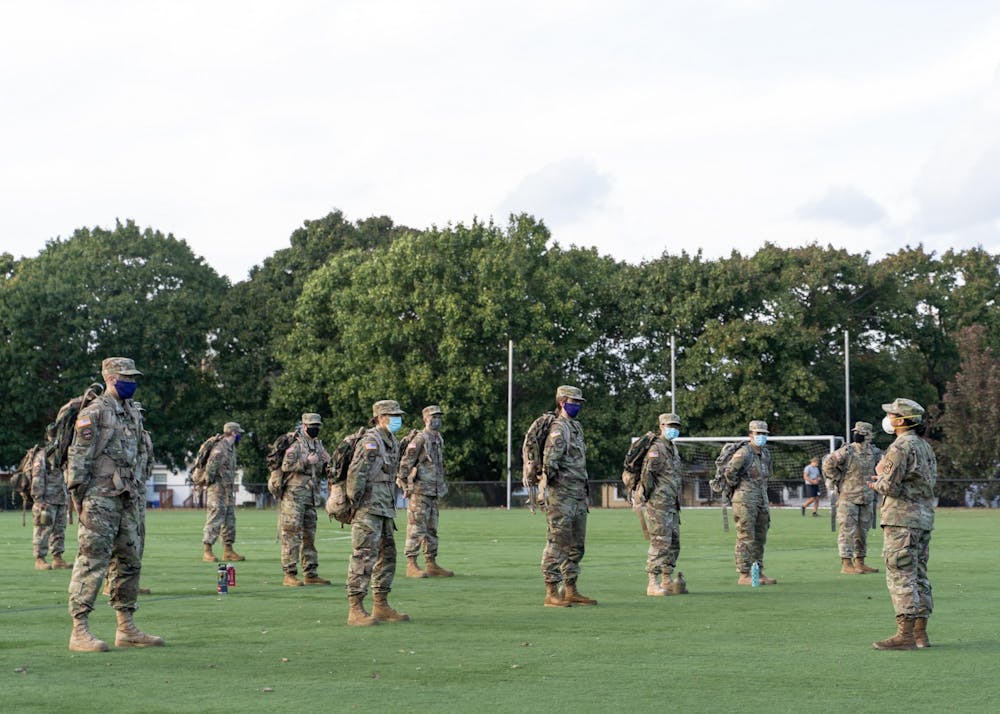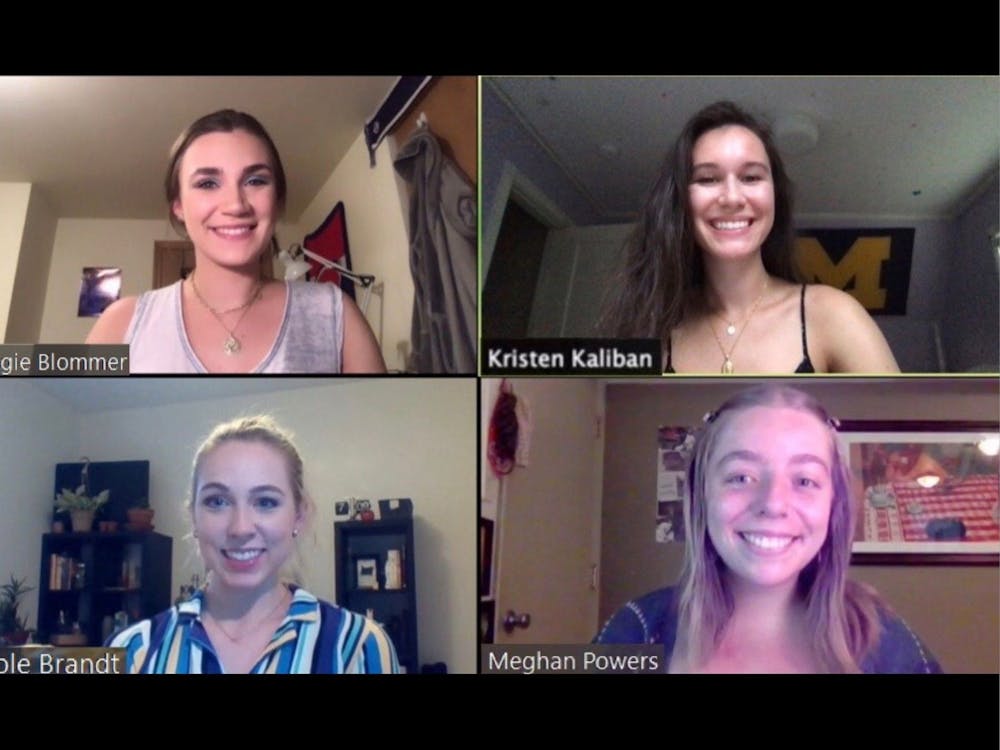For students in the University of Portland’s Reserve Officers’ Training Corps (ROTC) program, this semester has been marked by significant changes in many parts of their routine. Due to the requirements of the COVID-19 safety guidelines, ROTC members have faced a number of challenges in reorienting their day-to-day activities.
Despite many campus programs moving to entirely virtual platforms, ROTC is one of the few that has combined both in-person and online interaction. ROTC cadets must be on campus or in the Portland area so that they are able to participate in events such as training sessions and labs.
The weekly routine of ROTC cadets includes in-person physical training three times a week, one in-person lab and one online class. When attending their in-person activities, the cadets are required to wear masks and adhere to social distancing guidelines.
One of the most impactful changes to the ROTC program has been the temporary closure and limited operations in Beauchamp Recreation and Wellness Center, which was the main location for ROTC cadet workouts, for both group and individual settings. Because physical fitness is an integral part of the ROTC program, cadets had to quickly find other ways of working out. Junior Matthew Le has used technology to help keep him on a strong physical fitness routine.
“What I have done is downloaded a fitness app that gives me workouts to do for specific parts of my body, which is really helpful since I don’t have access to the gym equipment,” Le said. “Everyone has had to decide for themselves what they want to do to stay in shape, and some people are even looking at buying gym equipment themselves.”
Outside of physical fitness, ROTC has also changed significantly in the way of organization and planning. While past ROTC sessions and labs have followed a rigid schedule, this year has required cadets and staff alike to be constantly improvising.
“Last year, we would have already known our plans for physical training a week ahead of time,” ROTC MSIV (Military Science fourth year) Cadet Chris Tibbitts said. “But with COVID, and more recently the smoke, it is incredibly difficult to plan out a week in advance, because you just don’t know what is going to happen.”

A senior cadet oversees a group of younger cadets as they become more familiar with their rucksacks. A fully loaded ruck can weigh anywhere from 30 to 50 pounds.
ROTC cadets have access to an Operations Order; a document detailing all the specifics of a certain event. The Operations Order tells cadets things such as the time an event starts, the required dress/uniform, the sequence of steps in the training and more. At the end, the Operations Order includes a contingency plan which is ready to go in case of any unforeseen problems, such as the smoke that recently filled the campus, which caused cancellations in outdoor physical training.
“Contingency plans are a really beautiful thing to have,” Tibbits said. “Because they are prepared beforehand, you can instantly switch to that without a problem. Contingency plans have saved all of us hundreds of times because they are there and ready to go whenever you might need them.”
While a substantial part of ROTC life is based on physical training, there is also an academic component to the program. These academic classes, like many others, have faced the challenges of online learning.
“In many ways, the biggest change for us has been with academics because the foundation of a lot of our classes isn’t a lecture on a platform,” Lieutenant Colonel Jeremy Rockwell said. “Most of our classes, especially for juniors and seniors, are based on practical exercises. We focused on the student in the classroom and the cadets leading each other in these exercises. We are trying to find ways to still get that same interaction online.”
Though in many ways, COVID-19 has been inconvenient for the ROTC routine, it has also shown the grit and leadership of many people throughout the program. ROTC cadets in their junior and senior year are expected to begin taking more of an authoritative role in the group, which has been crucial in the uncertain nature of day-to-day activities
“Getting to work with all of the senior folks and the cadre who are making this happen is really quite cool,” Tibbitts said. “Watching everything flourish and develop in the way we envision it shows that we’re not allowing this stuff to stop us. We cannot cut corners; we have to be the best we can be. I am absolutely thrilled to be a part of this and be doing this my senior year. I would not have it any other way.”
Ajay Davis is a reporter for The Beacon. He can be reached at davisaj22@up.edu.








